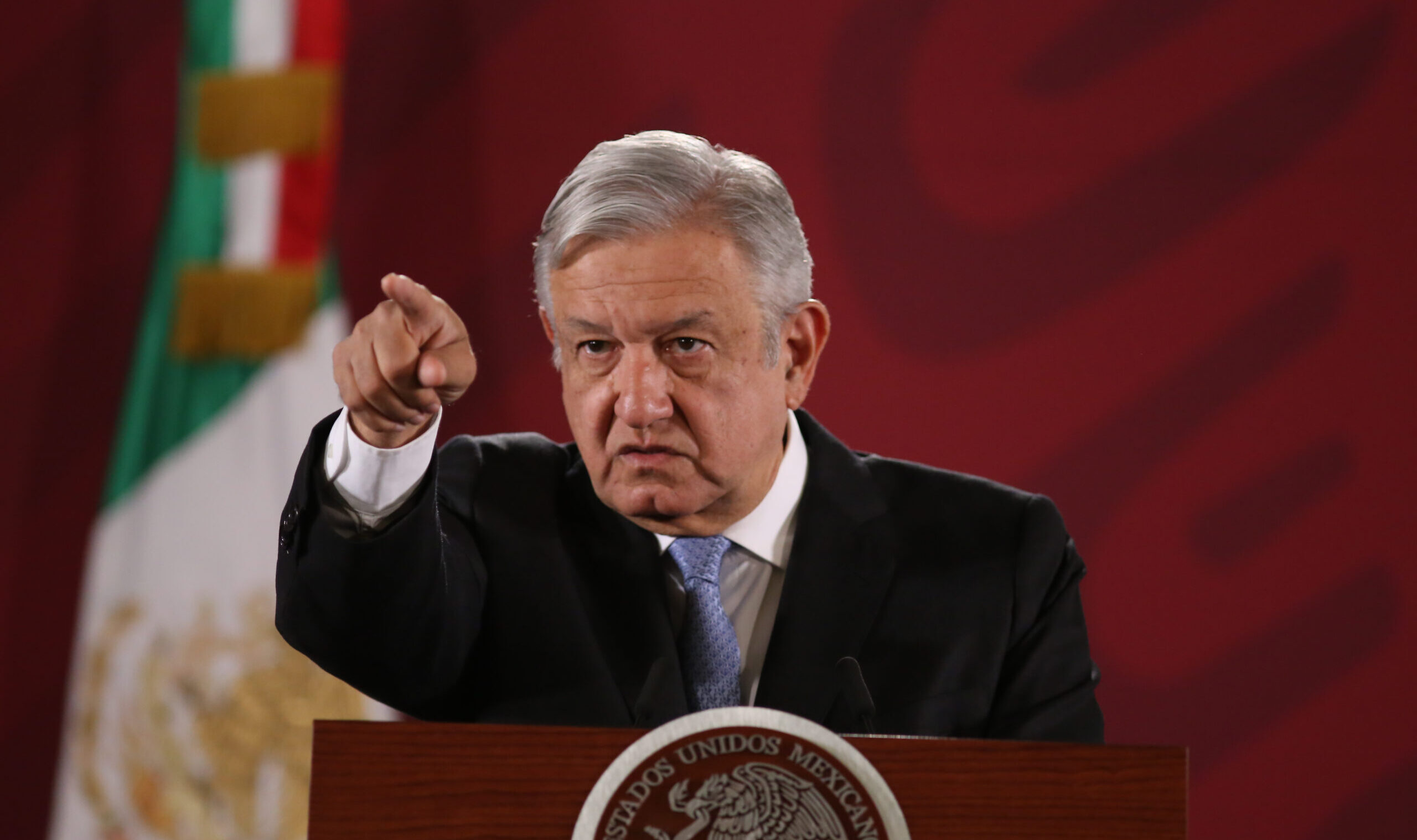AMLO’s Final Push for a New Mexico
The outgoing president has proposed sweeping constitutional reforms for his final month in office.

The overwhelming victory achieved by Morena, the political party of Mexico’s President Andrés Manuel López Obrador (AMLO), in the June Mexican federal elections has breathed new life into his plan for a sweeping reform of the Mexican political system.
The president originally proposed a 20-point set of constitutional amendments in February, but the package stalled in the legislature without ever achieving a vote on the floor.
Once the new Mexican Congress is sworn in on September 1, however, López Obrador will be able to count on a supermajority in the Chamber of Deputies and a Senate contingent just two votes short of a supermajority to back up his initiative.
Energized by the election results, legislators from Morena and its allied parties have begun to push the proposed constitutional amendments through the Committee for Constitutional Affairs in the Chamber of Deputies. Several have already been approved, and it is expected that the entire package—now consolidated to 18 proposals—will be ready in time for passage by the legislature during the month of September. The attempted passage of the constitutional reforms will be López Obrador’s last major initiative, as his successor, Claudia Sheinbaum—also elected in June—will be sworn in at the beginning of October, giving the outgoing president just one month to shepherd his proposal through Congress.
López Obrador’s proposed reforms cover a broad spectrum of political issues. He is intent on overhauling the Mexican welfare system before he leaves office, and a number of the proposed amendments are intended to strengthen social security and other forms of public assistance. These include rolling back cost-cutting adjustments to the pension and social security programs made in the ’90s, making permanent an employment training and apprenticeship program for Mexican young adults, and enshrining in the constitution a number of welfare provisions that are currently public law, including the disability pension system, rural economic assistance programs, and education grants for impoverished students. The president is also proposing the establishment of a new system of universal free healthcare for the country, with the details to be worked out in the future by the legislature.
Another set of reforms is focused on changes to government employment. This includes a substantial increase in an inflation-indexed minimum wage for public sector employees in a number of critical professions, including education and medical care. Other amendments cover a miscellany of the president’s other priorities, including anti-corruption measures, animal welfare, and environmental protection.
The most controversial part of the reform package, however, is a dramatic overhaul of the Mexican electoral and political system.
The first amendment in this portion of the reform would halve the amount of federal election funding given to parties for political campaigns and reconfigure the Mexican legislature, trimming the number of representatives in the Chamber of Deputies from 500 to 300 and cutting the number of senators in half from 128 to 64. The amendment would also eliminate the current two-tiered system of elections, in which a portion of both the Chamber of Deputies and the Senate are elected by proportional representation. Instead, all representatives would be elected in single-seat districts by majority vote, a method more favorable to the majority party than proportional representation.
Another amendment would revise the Mexican judiciary. Under this arrangement, judges (including judges on the Supreme Court of Mexico), which are currently appointed by the president or the Federal Judicial Council and confirmed by the Senate, would instead be chosen by popular election.
The third portion of López Obrador’s political reform is the abolition of independent agencies, including the National Election Institute (INE), the agency responsible for the oversight and administration of elections, and the Federal Institute for Access to Public Information and Data Protection. The responsibilities of these agencies would be transferred to existing executive branch departments under the supervision of the president, with their budgets greatly reduced or eliminated.
Finally, López Obrador has proposed integrating the Mexican National Guard into the Armed Forces, giving the president broad powers to deploy them unilaterally for the maintenance of public order and security.
This is actually the president’s third attempt to reform the INE, which he argues is corrupt and dominated by political opponents who undermine the integrity of Mexican elections. His first attempt was a 2022 constitutional reform which, however, failed to pass Congress. His second attempt, a law that he successfully pushed through the legislature and signed in February 2023, was ruled unconstitutional by the Supreme Court last year on the grounds that it had passed by means of a “corrupt defect in the legislative procedure.”
Subscribe Today
Get daily emails in your inbox
The result of these reforms would likely create a system favorable to the continued dominance of Mexican politics by Morena under Sheinbaum’s leadership. If AMLO successfully guides the amendments to passage during his last month in office, she could be inaugurated president of a completely new Mexico.
A political system institutionally dominated by Morena would not be a new thing for Mexico. For almost a century, the country was controlled exclusively by the Institutional Revolutionary Party (PRI), an arrangement that brought stability after a long period of civil wars, but which was accompanied by massive corruption. This corruption fostered the growth of the Mexican cartels, who leveraged the income from the nascent drug trade to influence local politicians and regional party bosses.
Corruption in Mexico, though much reduced, is still an endemic problem, and AMLO has made efforts to crack down on it with his program of republican austerity. Nevertheless, the new reform package risks reintroducing old incentives and opportunities for cartels to take advantage of. The U.S. should pay close attention to the results of the constitutional reforms if it is to maintain a relationship with a Mexican government capable of restricting the drug trade across the southern border.